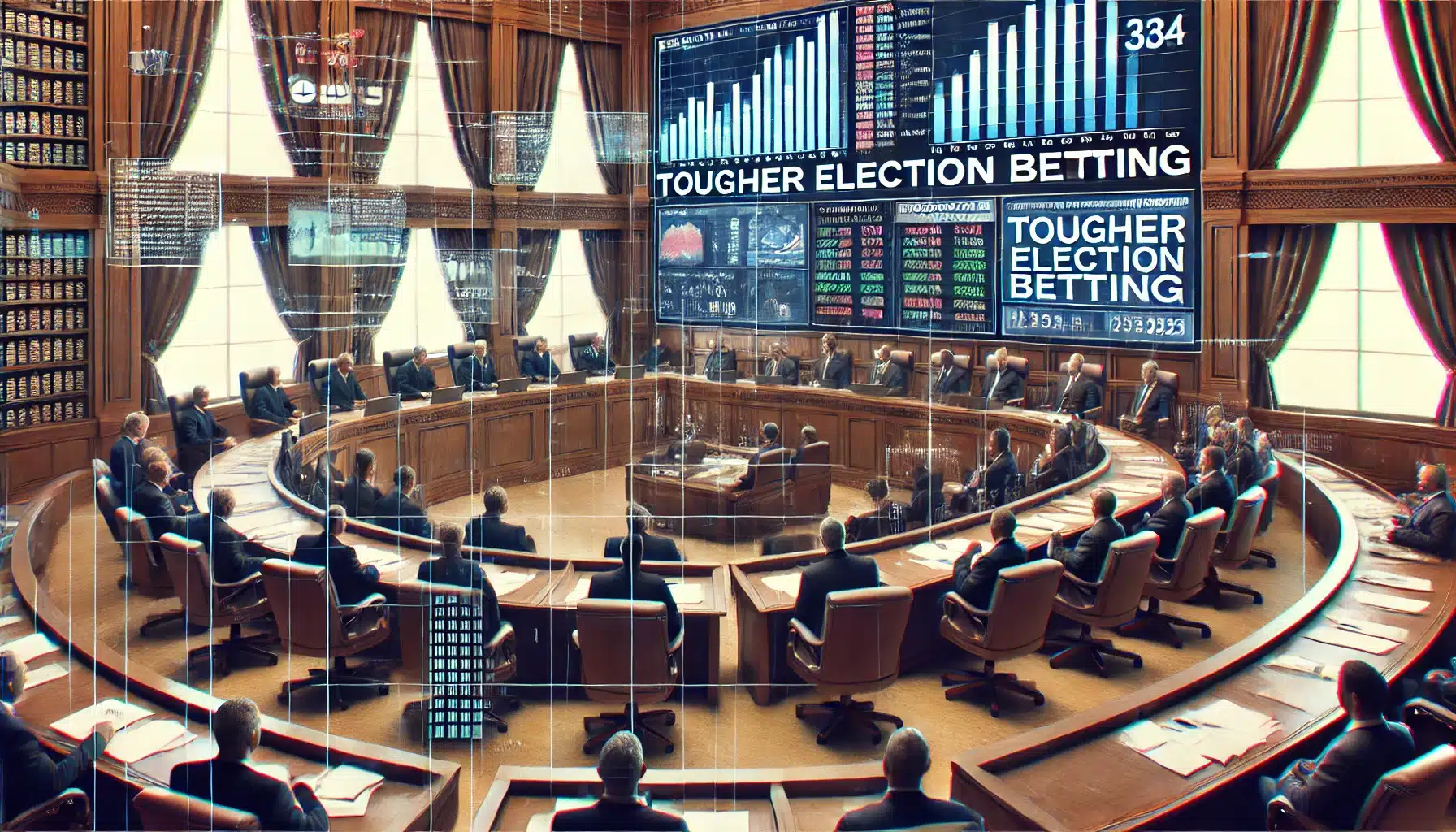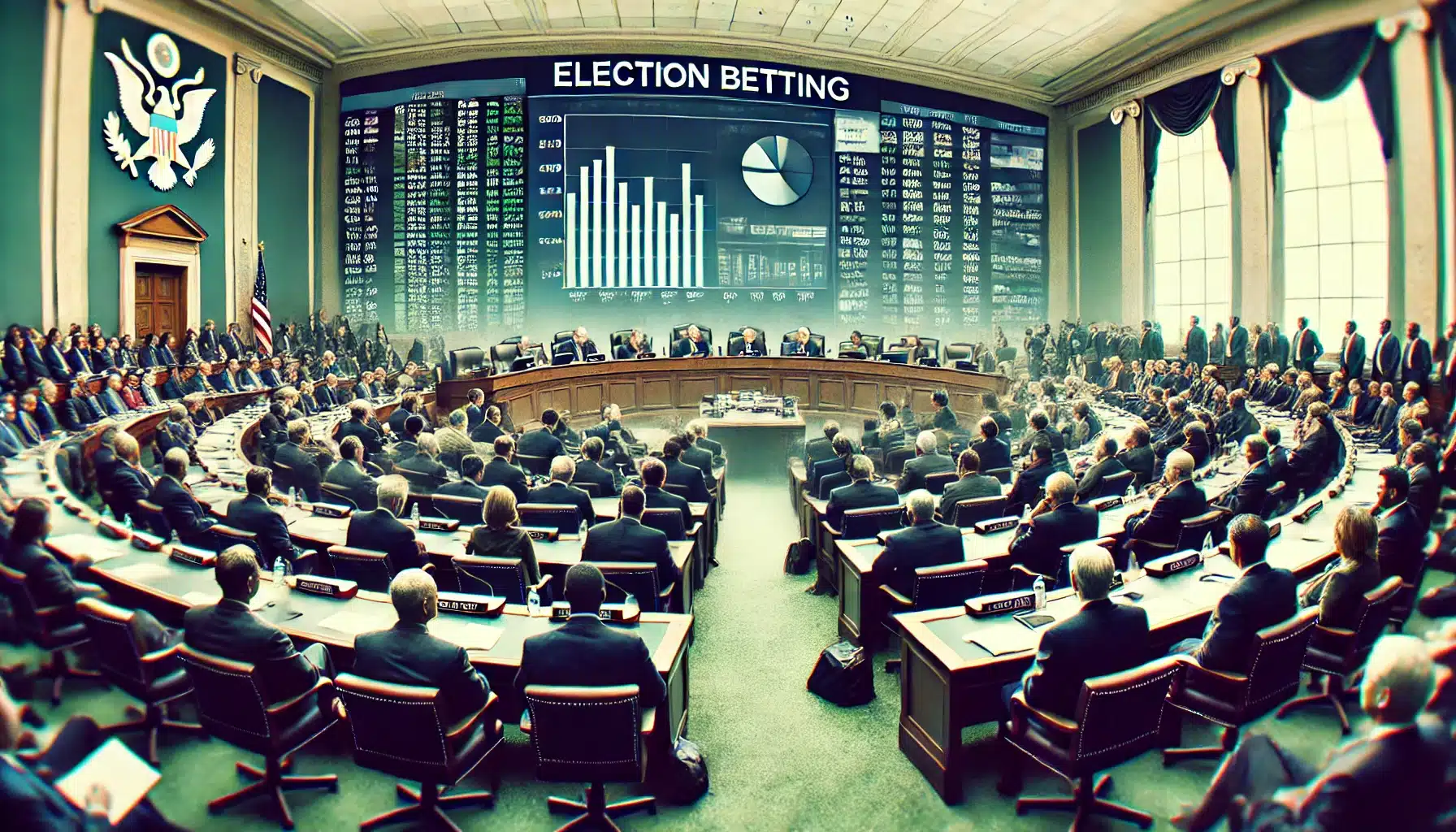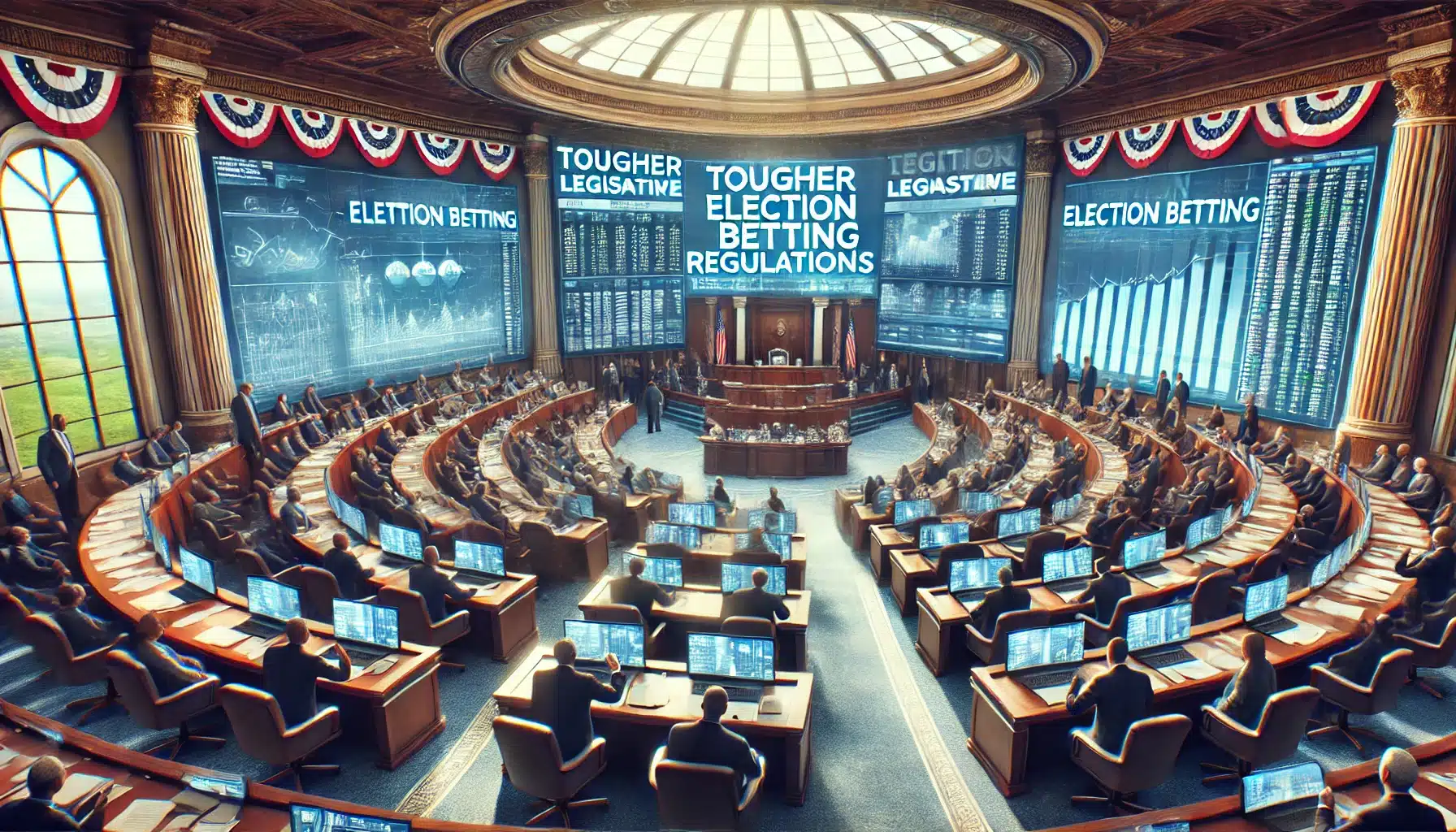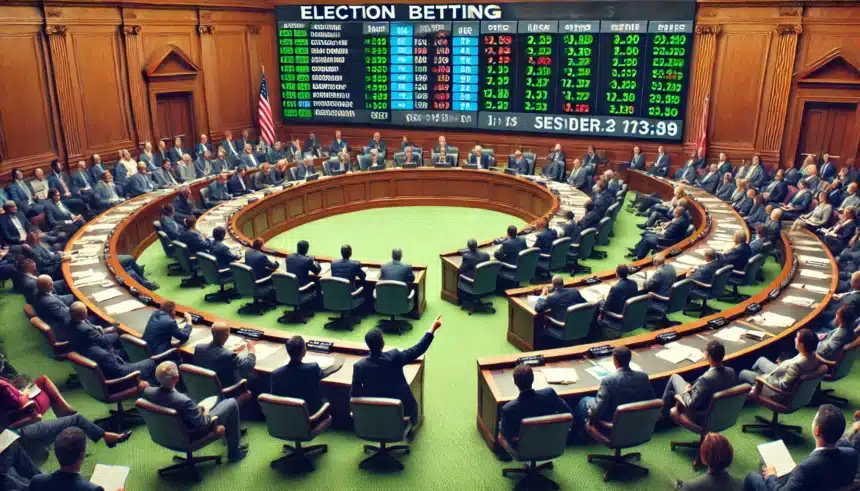The push for election betting regulation has intensified as a group of U.S. lawmakers express grave concerns about the impact of such practices on public trust and the democratic process. In a letter to the Commodity Futures Trading Commission (CFTC) Chairman Rostin Behnam, the legislators urge the finalization and implementation of a proposed rule to prohibit event contracts related to U.S. election outcomes. Their primary argument is that election betting could undermine the integrity of elections and lead to corruption.

Concerns Over Election Betting
The lawmakers, including Senators Richard Blumenthal, Chris Van Hollen, Elizabeth Warren, and Sheldon Whitehouse, along with Representatives Eleanor Holmes Norton, Jamie Raskin, and John Sarbanes, highlight the potential dangers of allowing betting markets on elections. They argue that such markets could commodify the democratic process, shifting voter motivations from genuine political convictions to financial incentives. The lawmakers emphasize that elections should not be treated as for-profit enterprises and warn that big money bets could influence election outcomes and erode voter confidence.
In their letter, they write, “The last thing voters need are bets waged on the outcome of that election. Voters need action, as proposed by the CFTC in this rule, to restore trust. Elections are not a for-profit enterprise. Without this rule, voters will wonder if their vote mattered and whether the outcome of the election was influenced by big money bets.”
Polymarket Under Scrutiny
Polymarket, a predictions market operating on the Polygon blockchain, has come under scrutiny amid this regulatory push for election betting regulation. The platform allows users to buy shares using USD Coin (USDC) and trade on various event outcomes, including elections. Polymarket’s transparency and diverse betting options have made it popular, with over 1.5 million bets and a total trading volume exceeding $1 billion in July alone. However, this success has also raised fears of corruption and undue influence on elections.

The legislators argue that platforms like Polymarket could allow wealthy individuals and corporations to exert significant influence over election results. They highlight the risks of political insiders using non-public information for personal gain, further degrading public trust in the electoral process. The letter to the CFTC Chairman states, “Allowing billionaires to wager extraordinary bets while simultaneously contributing to a specific candidate or party, and political insiders to bet on elections using non-public information, will further degrade public trust in the electoral process.”
Call for Swift Action
The push for election betting regulation has gained momentum, with lawmakers urging the CFTC to act swiftly. They argue that without strict regulations, the integrity of U.S. elections could be compromised. The letter emphasizes the importance of preserving the sanctity of the democratic process and preventing the commodification of elections.
Senator Jeff Merkley, who also recently wrote a similar letter urging the CFTC to reject a proposal from a private prediction market operator seeking to legalize gambling on U.S. election outcomes, has been a prominent voice in this debate. The CFTC ultimately disapproved the proposal, highlighting the growing concern over election betting.

Future of Election Betting
As the 2024 election approaches, the debate over election betting regulation continues to gain traction. The outcome of this regulatory push could have significant implications for the integrity of the U.S. electoral process and the future of political betting markets. While platforms like Polymarket offer innovative ways for users to engage with events, the potential risks to democracy cannot be ignored.
The lawmakers’ call for election betting regulation is rooted in the belief that elections are a fundamental aspect of democracy and should remain free from the influence of big money bets. By urging the CFTC to implement the proposed rule, they hope to restore public trust and ensure that elections are not treated as commodities.
In conclusion, the push for election betting regulation underscores the need to protect the integrity of the democratic process. As lawmakers continue to advocate for strict regulations, the future of election betting markets remains uncertain. Ensuring that elections are conducted fairly and without undue influence is crucial for maintaining public trust and confidence in democracy. Stay tuned for more updates on this evolving story on The Bit Journal.





























